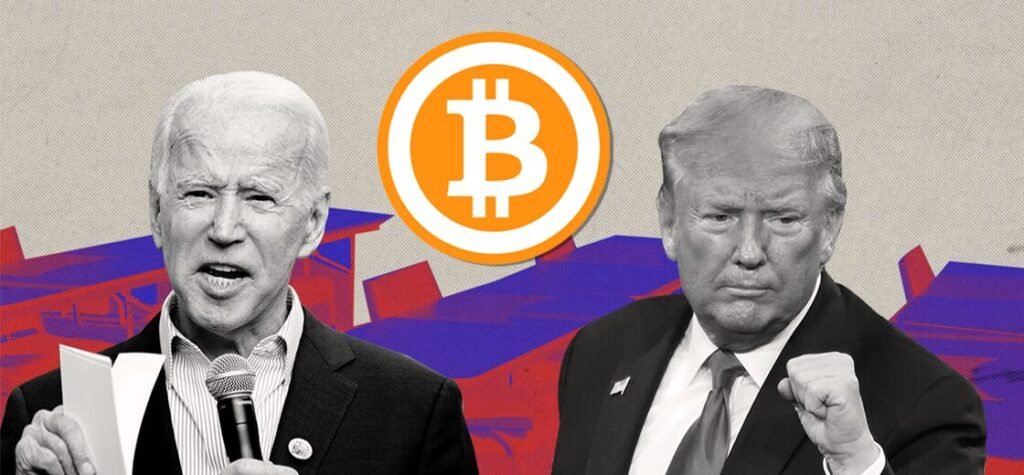Trump And Biden: Key Differences In Domestic And Foreign Policy

Table of Contents
Domestic Policy Differences: A Comparison of Trump and Biden's Approaches
The domestic policy agendas of Trump and Biden diverged significantly, leading to contrasting approaches to economic management, healthcare, and social issues.
Economic Policy
Trump's economic policy centered on the Tax Cuts and Jobs Act of 2017, a significant tax cut aimed at stimulating economic growth through deregulation. He also pursued protectionist trade policies, imposing tariffs on goods from various countries, particularly China. This "America First" approach aimed to boost domestic industries but also sparked trade wars and economic uncertainty.
- Tax Cuts and Jobs Act: Reduced corporate and individual income taxes. While proponents argued it stimulated economic growth, critics pointed to increased national debt and disproportionate benefits to the wealthy.
- Trade Wars: Tariffs imposed on imported goods led to retaliatory tariffs from other countries, impacting American businesses and consumers.
- Deregulation: Easing environmental and financial regulations was intended to reduce burdens on businesses, but critics raised concerns about potential negative impacts on public health and the environment.
Biden's economic policy, conversely, focuses on investments in infrastructure, clean energy, and human capital. He advocates for increased taxes on corporations and high-income earners to fund these initiatives and reduce income inequality. His approach emphasizes a fairer trade system based on cooperation rather than confrontation.
- Infrastructure Investment: Significant spending proposed on roads, bridges, broadband, and other infrastructure projects aimed at creating jobs and boosting long-term economic growth.
- Clean Energy Transition: Investments in renewable energy sources and efforts to combat climate change are central to Biden's economic plan.
- Strengthening Labor Unions: Promoting collective bargaining and worker rights is a key aspect of Biden's approach to bolstering the middle class.
Healthcare Policy
Trump's administration made repealing and replacing the Affordable Care Act (ACA) a central goal, though efforts to do so ultimately failed. Their focus shifted to deregulation of the healthcare industry.
- ACA Repeal Attempts: Multiple legislative efforts to repeal and replace the ACA were unsuccessful, leaving the law largely intact.
- Deregulation: Relaxation of regulations aimed at reducing costs, but critics argued this led to reduced consumer protections.
Biden, in contrast, aims to expand access to affordable healthcare. His plan involves strengthening the ACA, lowering prescription drug costs, and expanding access to Medicare.
- ACA Expansion: Proposals include expanding subsidies to make ACA plans more affordable and increasing enrollment.
- Prescription Drug Costs: Negotiating lower drug prices with pharmaceutical companies is a key priority.
- Medicare Expansion: Proposals include expanding Medicare benefits and potentially lowering the eligibility age.
Social Issues
Trump's administration adopted a conservative stance on many social issues, including restricting abortion rights and tightening immigration policies.
- Abortion Restrictions: Appointments of conservative Supreme Court justices shifted the balance of the court, potentially impacting abortion rights.
- Immigration Restrictions: Policies focused on border security and limiting legal immigration.
Biden, on the other hand, supports abortion rights and advocates for comprehensive immigration reform.
- Abortion Rights: Protecting and expanding access to abortion services is a central element of Biden's platform.
- Immigration Reform: Focus on creating a pathway to citizenship for undocumented immigrants and reforming the immigration system.
Foreign Policy Contrasts: Trump vs. Biden's Global Strategies
The foreign policy approaches of Trump and Biden represent a significant ideological shift in American foreign relations.
Approach to International Alliances
Trump's "America First" approach led to a questioning of the value of international alliances, resulting in withdrawals from several key agreements.
- Withdrawal from the Paris Agreement: The US withdrew from the international climate agreement, raising concerns about global cooperation on climate change.
- Withdrawal from the Iran Nuclear Deal: The Trump administration unilaterally withdrew from the deal, increasing tensions with Iran.
- Strained Relationships with Allies: Trump's policies and rhetoric strained relationships with traditional allies such as Canada, Mexico, and European nations.
Biden, conversely, prioritizes restoring and strengthening international alliances and multilateralism.
- Rejoining the Paris Agreement: Biden rejoined the agreement shortly after taking office, signaling a commitment to international cooperation on climate change.
- Re-engagement with Allies: Efforts to rebuild trust and strengthen relationships with traditional allies.
- Multilateral Diplomacy: Emphasis on working with international organizations and allies to address global challenges.
Foreign Policy Priorities
Trump focused on bilateral deals and a confrontational approach toward China, using trade wars as a primary tool.
- Bilateral Deals: Emphasis on negotiating individual agreements with countries rather than relying on multilateral frameworks.
- Trade War with China: Imposition of tariffs and other trade restrictions led to a period of heightened trade tensions.
Biden's foreign policy prioritizes diplomacy, tackling climate change, promoting human rights, and addressing global health crises.
- Diplomacy and Cooperation: Emphasis on diplomatic solutions and international cooperation to address global challenges.
- Climate Change: Making climate change a central foreign policy priority.
- Global Health: Strengthening international cooperation on global health issues, including pandemic preparedness and response.
Middle East Policy
Trump's Middle East policy included recognizing Jerusalem as Israel's capital and brokering the Abraham Accords, normalizing relations between Israel and several Arab nations.
- Jerusalem Recognition: This move was controversial, as it deviated from previous US policy and angered Palestinians.
- Abraham Accords: These agreements normalized relations between Israel and several Arab countries, a significant diplomatic achievement.
Biden's approach emphasizes re-engagement with the Iran nuclear deal and a focus on diplomacy and conflict resolution.
- Iran Nuclear Deal: Efforts to rejoin the Iran nuclear deal and de-escalate tensions with Iran.
- Diplomacy and Conflict Resolution: Prioritizing diplomatic solutions to conflicts in the Middle East.
Conclusion
This comparison of Donald Trump's and Joe Biden's domestic and foreign policies reveals significant ideological and strategic differences. These differences have had, and will continue to have, profound impacts on the United States and the global community. Understanding the contrasting approaches of "Trump vs Biden Policy" is vital for navigating the current political landscape. Further research into specific policy areas is encouraged to gain a more comprehensive understanding of the implications of each approach. Continue exploring the nuances of these policies to become a more informed voter and citizen.

Featured Posts
-
 Ai Therapy And The Surveillance State A Critical Analysis
May 16, 2025
Ai Therapy And The Surveillance State A Critical Analysis
May 16, 2025 -
 Foot Lockers New St Petersburg Headquarters A Lease Agreement Confirmed
May 16, 2025
Foot Lockers New St Petersburg Headquarters A Lease Agreement Confirmed
May 16, 2025 -
 Bidens Denials Examining The Washington Examiners Claims
May 16, 2025
Bidens Denials Examining The Washington Examiners Claims
May 16, 2025 -
 One Injured In Ohio City Apartment Complex Shooting
May 16, 2025
One Injured In Ohio City Apartment Complex Shooting
May 16, 2025 -
 Ahy Dan Proyek Tembok Laut Raksasa Implikasi Keterlibatan China
May 16, 2025
Ahy Dan Proyek Tembok Laut Raksasa Implikasi Keterlibatan China
May 16, 2025
Latest Posts
-
 Telford Steam Railway Newly Rebuilt Station Platform Now Open
May 16, 2025
Telford Steam Railway Newly Rebuilt Station Platform Now Open
May 16, 2025 -
 Auction Results Reveal High Demand For Kid Cudi Memorabilia
May 16, 2025
Auction Results Reveal High Demand For Kid Cudi Memorabilia
May 16, 2025 -
 Kid Cudis Personal Items Fetch High Prices At Recent Auction
May 16, 2025
Kid Cudis Personal Items Fetch High Prices At Recent Auction
May 16, 2025 -
 The Kid Cudi Auction A Look At The Impressive Sales Figures
May 16, 2025
The Kid Cudi Auction A Look At The Impressive Sales Figures
May 16, 2025 -
 High Value Bids On Kid Cudis Personal Effects At Recent Auction
May 16, 2025
High Value Bids On Kid Cudis Personal Effects At Recent Auction
May 16, 2025
